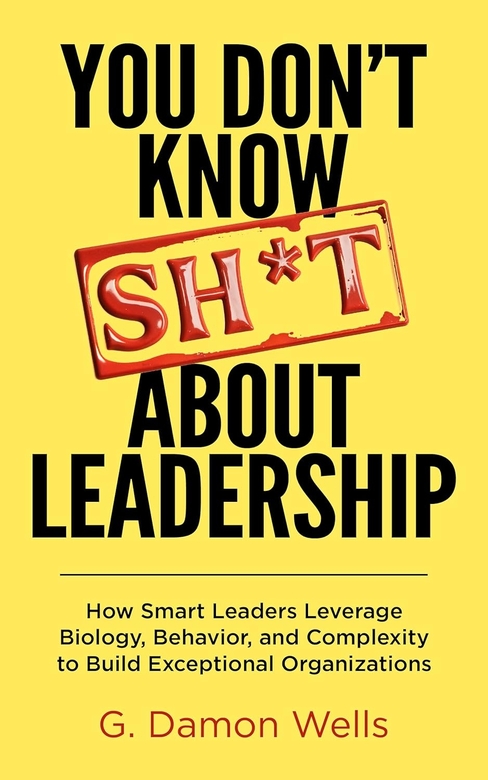An impressive exploration of decision-making by both organizations and individuals, You Don’t Know Sh*t About Leadership: How Smart Leaders Leverage Biology, Behavior, and Complexity to Build Exceptional Organizations by G. Damon Wells is an unapologetic guide to self-knowledge and long-term effectiveness in whatever life direction you choose.
In a world where thought leaders have become more public-facing and accessible, it has become clear that being in charge doesn’t necessarily mean being the right person for the job. This book attempts to identify and bridge the disconnect between traditional leadership methods and contemporary efficacy in positions of authority. Wells explains the psychological and economic impacts of poor leadership, the prevalence of toxic leaders in major corporations, the responsibility of the business world for generating ineffective leaders, and the difficulties that technology has introduced to the realm of competent decision-making.
Teaching aspiring leaders how to overcome leadership challenges, the book also explains the root causes of these problems and how to avoid them entirely. Whereas so many self-help books in this genre niche superficially focus on the common mistakes leaders make, along with basic tips on how to avoid them, this book fully delves into the cognitive and behavioral foundations of leadership, touching on evolutionary psychology, neuroscience, philosophy, social interaction theories, and more.
The author’s artful takedown of cliché leadership wisdom is quite refreshing, and he makes a compelling argument for restructuring decision-making processes in every area of life. This not only gives more data-backed credibility to Wells’ arguments, but also elevates the book far beyond one person’s reflection on what makes a good commander/leader. With a career in the military being his primary experience of leadership hierarchies, it could seem that the context for his critique might be narrow, but the book offers an overview of leadership that is applicable to a broad spectrum, without being overly general. Not all of the guidance will feel appropriate, depending on the readers’ particular leadership position, but most of the information is immediately actionable.
Surprisingly, given the brash title of the book, the writing is fairly sober-minded – erudite, carefully edited, and well-balanced between narrative opinion and research-backed claims. It is also unexpectedly encouraging and optimistic, reminding readers that being a good leader is not about making major overhauls to your personality, but rather using the skills you already have in more impactful ways, told with an encouraging voice that demonstrates the book’s own premise. There are some redundancies in the prose, from specific lines or sweeping conclusion statements to larger repetitive sections about neuroplasticity and game theory. The formatting could also use some tweaking/variation; the plethora of short subsections within some chapters can make the reading experience choppy, while other long stretches of dense explanation may leave less keen readers in the weeds.
Aside from these minimal flaws, this is an impressively holistic and objective book on contemporary leadership. Whether you are a hiring manager looking for effective leaders to add to your company, an individual seeking best practices to stand out amongst a crowd, or a veteran CEO fighting to stay relevant and respected, this book provides valuable insight for sustainable success.
Book Links
STAR RATING
Design
Content
Editing
Get an Editorial Review | Get Amazon Sales & Reviews | Get Edited | Get Beta Readers | Enter the SPR Book Awards | Other Marketing Services
























Leave A Comment